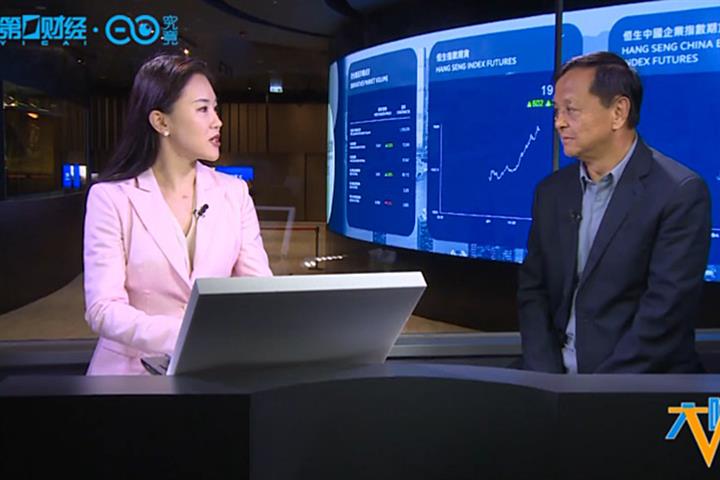 Micro Connect Aims to Lend to Over 10,000 Small Businesses in 2023, Chairman Charles Li Says
Micro Connect Aims to Lend to Over 10,000 Small Businesses in 2023, Chairman Charles Li Says(Yicai Global) Sept. 13 -- Micro Connect aims to lend to more than 10,000 small and micro businesses in China next year, after likely extending small loans to over 2,000 this year, according to co-founder and Chairman Charles Li.
Micro Connect, of which Li is also chairman, uses blockchain technology and innovative finance to bring together micro and small businesses in the Chinese mainland with global investors. Its backers include Sequoia Capital China, Horizons Ventures, and Vector Fintech.
Li, who stepped down as chief executive of Hong Kong Exchanges and Clearing at the end of 2020, recently took time out to tell Yicai Global about Micro Connect. Excerpts from the interview are below.
Yicai Global: Why did you want to create such a platform?
Charles Li: We believe micro and small companies in the real economy are the most dynamic part of the Chinese economy. However, they have the most limited access to finance because the risks are relatively high for them.
Financing, traditionally conducted with bonds or equities, is a centralized input mode that is very costly. Small firms only need modest amounts of money and they cannot afford such a financing mode.
A new financing mode in a scattered and distributed drip-irrigation form can now be discussed, partly because small and micro firms have become highly digitalized and their income is completely transparent.
Every day, we collect money from those receiving our investment, taking a certain proportion of their daily income. In this way, the firms will not be under too much pressure. And if the firms are in danger, the risks are shared between them and us.
YG: What role does technology play?
Li: The assets end relies on a digital payment system to directly extract money. We need to let the investors know where we put their money and enable them to see money coming into their accounts daily. How do we do that? Blockchain technology enables us to extract money and conduct the right confirmations, in a distributed manner.
This breaks the whole product chain into quite fragmented pieces and distributes them across many small contracts, so we know where every yuan comes from and where it should go. Finance can be a very transparent game with such technical measures.
YG: What do small and micro businesses think about it?
Li: Acceptance is very high. People love it, and the reason is that it’s simple. Small firms need to give out part of their earnings as a condition to receive the money but they needn't pay it off when they are in difficulties.
YG: What are the challenges involved?
Li: This is a systematic project. It requires you to be able to set up a network that can access many small and micro firms while building a network enabling investors' participation.
We invested in at least 100 small and micro-sized firms in the first quarter since the launch in early 2022. The number may top 2,000 this year and we aim to exceed 10,000 next year. There are companies receiving our investment in over 80 Chinese cities, including Lhasa, in fields such as catering, retail, service, culture and sport. Each investment is very small, roughly CNY400,000 to CNY500,000.
YG: What's next?
Li: Domestically, there are over 70 million small companies. First, we will cover 14 million, or about 20 percent of them, before investing in others, piece by piece.
Which kinds of small companies are more suitable? Getting enough data will allow us to make informed investment decisions.
Editors: Liao Shumin, Tom Litting